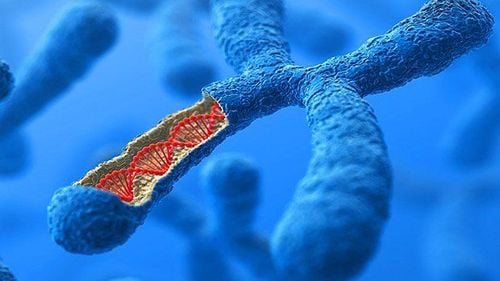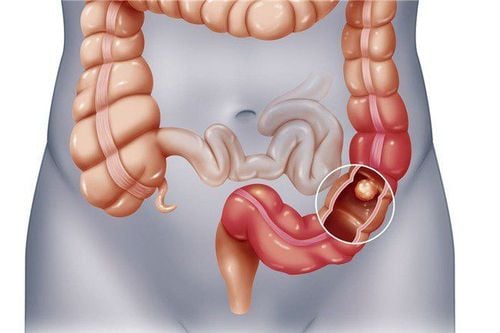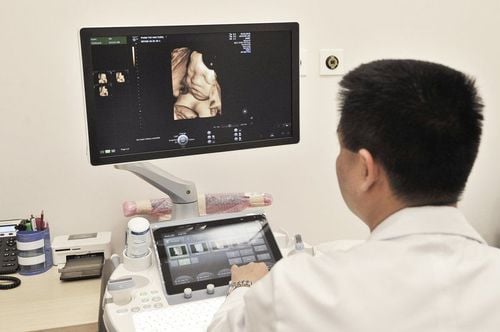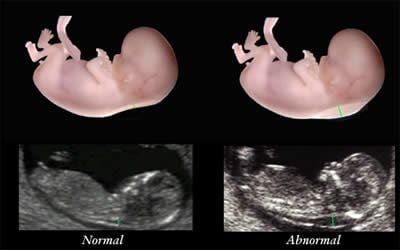This is an automatically translated article.
The article was professionally consulted by Dr. Nguyen Anh Tu - Doctor of Obstetric Ultrasound - Prenatal Diagnosis - Obstetrics Department - Vinmec Hai Phong International General Hospital.Screening for Klinefelter syndrome by invasive diagnoses, amniocentesis or placental biopsy carries a high risk of miscarriage and fetal malformations. Fetal DNA testing in maternal blood NIPT is a new, safe, and effective prenatal screening test for Klinefelter syndrome.
1. The NIPT test is the new screening method for Klinefelter syndrome
Klinefelter syndrome is a genetic disorder in males that occurs when a person has 1 pair of X chromosomes instead of only 1 X chromosome in the chromosome set. Klinefelter syndrome greatly affects the physical, language and social development, especially the fertility of the patient.Klinefelter syndrome is a common genetic disorder that affects men and is often not diagnosed until adulthood. About 1 in 1,000 people have this syndrome.
Because it is a chromosomal disorder, Klinefelter Syndrome cannot be cured, doctors can only provide supportive treatment or the patient has to live for life in this condition. Therefore, prenatal screening for Klinefelter syndrome is considered an effective preventive measure, avoiding the birth of children with the disease.
Traditional fetal screening for Klinefelter syndrome is primarily done by chromosomal analysis of amniotic fluid samples or placental biopsies. Performing this invasive procedure carries a risk of harming the fetus, with a high rate of miscarriage and fetal malformations.
Therefore, noninvasive screening methods for Klinefelter syndrome and genetic syndromes are investigated and selected instead. In particular, fetal DNA test in maternal blood (NIPT) is the current prominent screening test method, recommended by many doctors.

2. Why screen for Klinefelter syndrome with fetal DNA testing?
NIPT (Non-Invasive Prenatal Test) is the most advanced prenatal testing method in the world today. This test analyzes the free fetal DNA dissolved in the mother's blood by gene sequencing technology, thereby helping to detect chromosomal abnormalities from a very early fetal time with very high accuracy.Traditional prenatal diagnostic methods such as amniocentesis and placental biopsy have high accuracy but have many potential unsafe factors such as: increased risk of miscarriage, vaginal bleeding, leakage of fluid. amniotic fluid, infection, ... Moreover, the rate of false positives is high, increasing the proportion of pregnant women needing unnecessary amniocentesis. To diagnose whether the fetus has Klinefelter syndrome or not, traditional diagnostic methods take a placenta or amniotic fluid sample late, from the 12th week of pregnancy onwards, depending on the method.
Therefore, prenatal screening NIPT meets the wishes of pregnant women in prenatal DNA screening, without amniocentesis, placental biopsy, non-invasive, so it is much safer. Furthermore, NIPT screening can be performed from the 10th week of pregnancy onwards, helping to detect very early chromosomal abnormalities, including Patau syndrome. It only takes 3 to 5 days, pregnant women can receive the results of the fetus has Klinefelter syndrome or other malformations or not.
With prenatal screening, doctors now recommend that not only high-risk pregnant women with a family history of genetic diseases, but all pregnant women should do it. To choose a method of non-invasive prenatal screening by fetal DNA testing (NIPT), pregnant women need to consult with obstetricians and geneticists.
3. Where is the NIPT screening for Klinefelter syndrome done?
Advanced fetal DNA testing technique in maternal blood - NIPT is currently being implemented at Vinmec Hospital, which has brought remarkable improvements in prenatal screening, helping to early and effectively intervene in fetuses with syndromes Klinefelter and other malformations.Vinmec International General Hospital is home to a team of experienced, well-trained experts in the country and in countries with the world's leading developed medicine such as Germany, England. , France.

Ensure privacy and confidentiality of customer information Process of taking and transporting blood samples containing maternal DNA and I guarantee according to ISO 15189/2012 standard. Informative consultations about NIPT testing with a genetic pathologist. Customers will not receive results without genetic counseling Clean laboratory system, modern equipment. Insurance assistance is available for false positive or negative results. Doctor Nguyen Anh Tu has 6 years of experience in obstetrics and gynecology ultrasound, specially researched and trained in fetal ultrasound - prenatal diagnosis. Dr. Tu has completed courses on ultrasound - prenatal diagnosis of the FMF International Fetal Medicine Association; trained in consulting and implementing diagnostic intervention techniques in fetal medicine and participated in many specialized conferences and seminars on Fetal Medicine. Currently working as a doctor at the Department of Obstetrics and Gynecology at Vinmec Hai Phong International Hospital For safe NIPT fetal DNA test, please contact Vinmec for advice.
Please dial HOTLINE for more information or register for an appointment HERE. Download MyVinmec app to make appointments faster and to manage your bookings easily.














